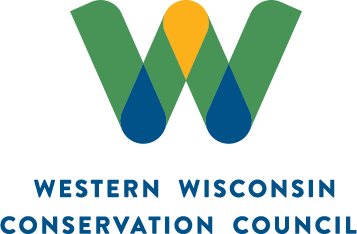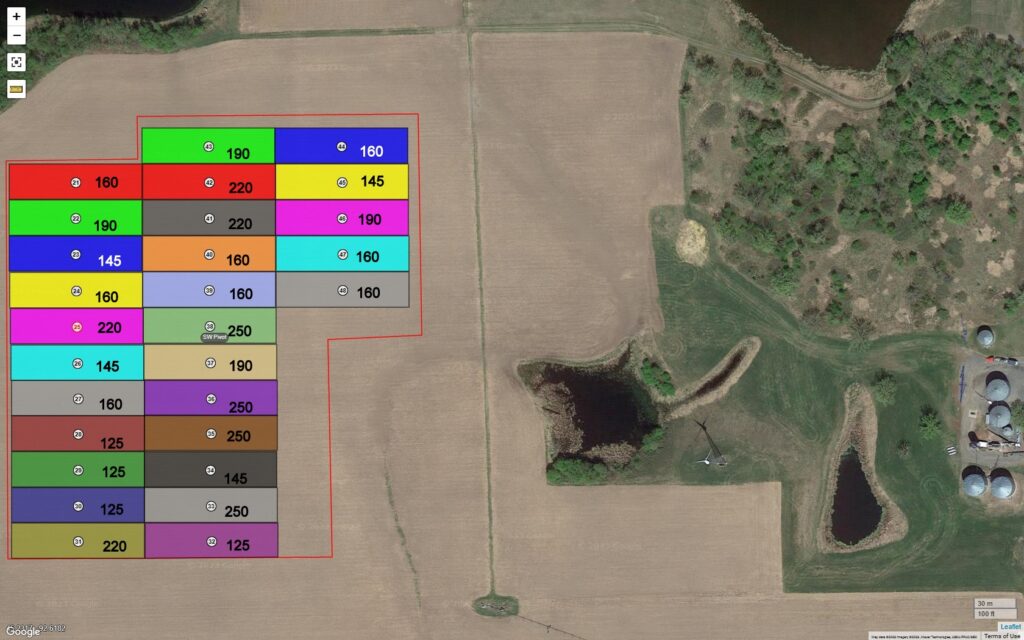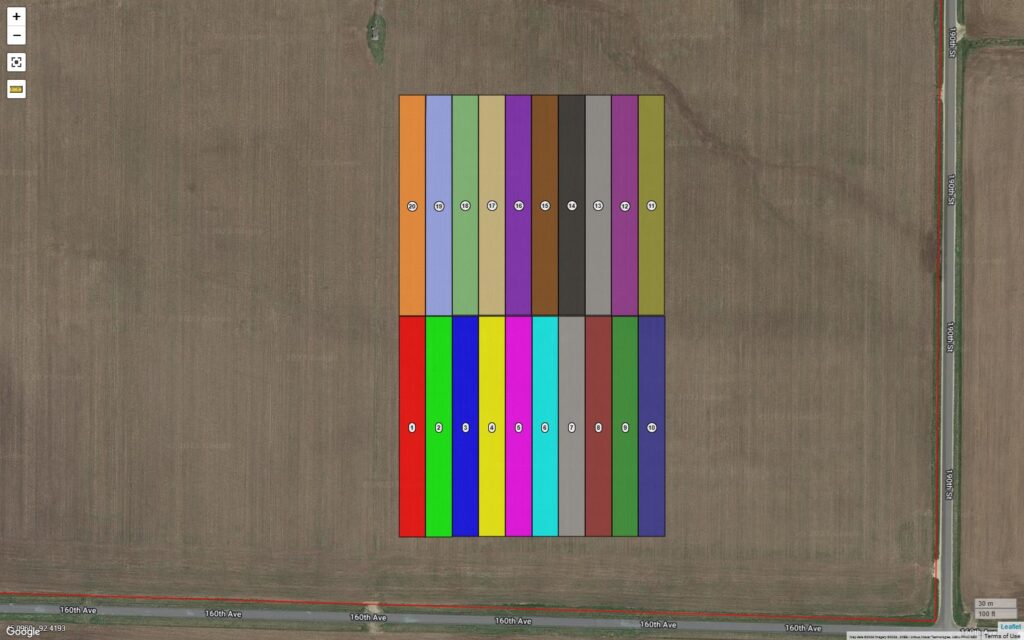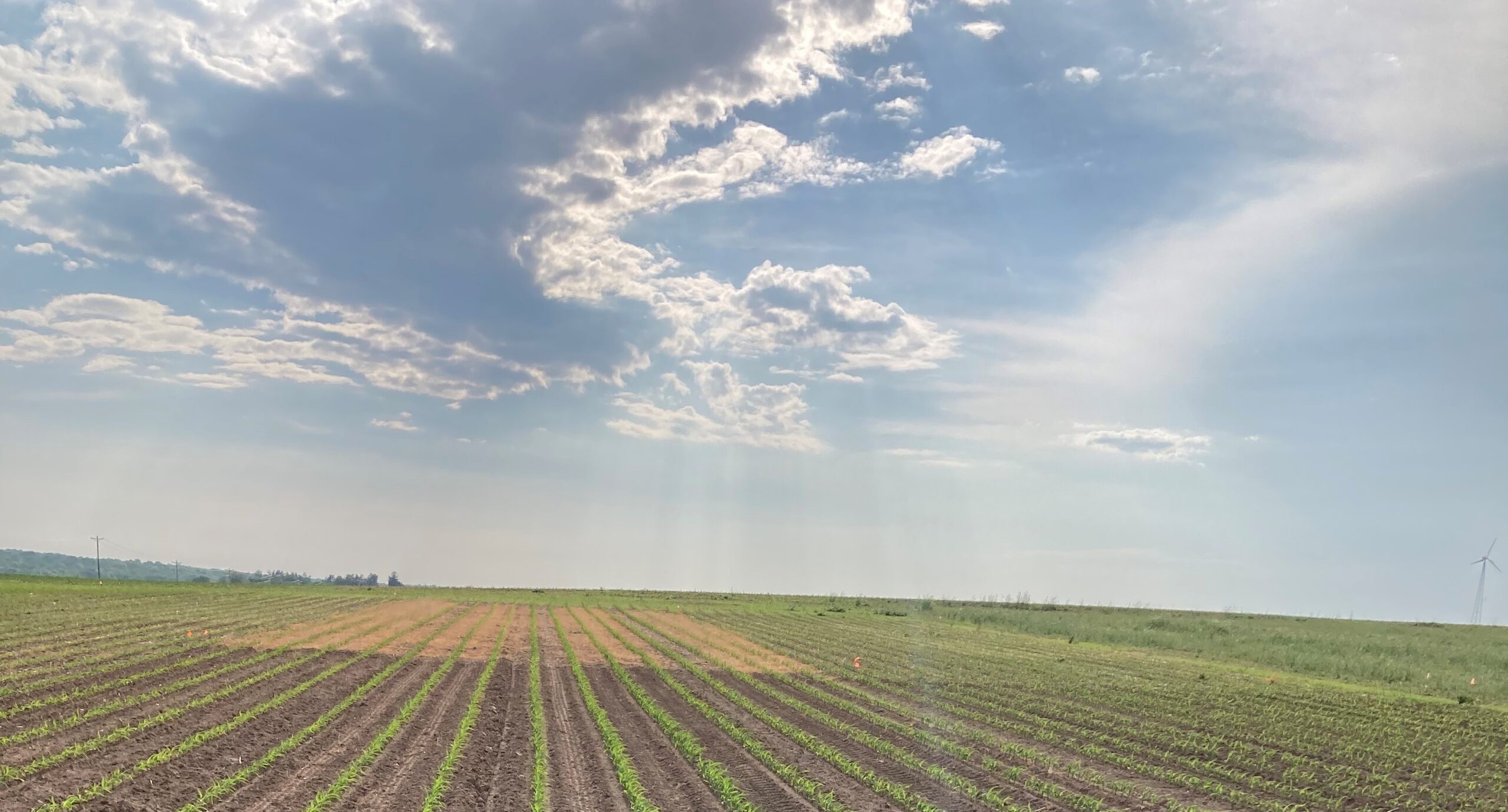
written by David Tollberg and Dr. Jill Coleman Wasik
Western Wisconsin Conservation Council is partnering with the DATCP, The University of Wisconsin River Falls, Northland Crop Consulting, and The Nature Conservancy to conduct a four-year study investigating the impact of nitrogen rates on corn yield. The research is being carried out on two fields, one located on the Carlson Farm in southern Polk County and one on the Mitchell Farm in St Croix County. Both fields are irrigated to help eliminate drought’s effects and secure good data for the four-year period. The Mitchell field is receiving turkey manure during the period and variable rates of commercial nitrogen fertilizer. The Carlson field will have variable nitrogen rate applications from commercial fertilizer. Each field is divided into plots that receive varying nitrogen rates above and below recommendations for irrigated fields in Wisconsin. Each rate of nitrogen is replicated 4 times within the field to allow for statistically valid comparisons among treatments.
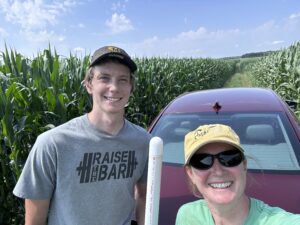 Dr. Jill Coleman Wasik from UWRF has worked with WWCC for the past six years on the nitrate well testing program. She also maintains lysimeter nests in four member fields to collect soil water and measure the movement of nitrogen in the soil profile. She has been instrumental in the application of this project and plot design. A student from River Falls will work with her as an intern to help in plot work and data collection. Lysimeters were installed in the Carlson plot to measure nitrogen movement in the soil profile.
Dr. Jill Coleman Wasik from UWRF has worked with WWCC for the past six years on the nitrate well testing program. She also maintains lysimeter nests in four member fields to collect soil water and measure the movement of nitrogen in the soil profile. She has been instrumental in the application of this project and plot design. A student from River Falls will work with her as an intern to help in plot work and data collection. Lysimeters were installed in the Carlson plot to measure nitrogen movement in the soil profile.
Dr. Susanne Wiesner from UWRF will be using remote sensing to learn how these different rates of nitrogen applications can be detected from aerial imaging and correlated to yield. She will also work on how the rates affect plant productivity and quality.
All variations of nitrogen applications in the plots will be done using variable rate technology. Nitrogen prescriptions have been downloaded to the tractors making the fertilizer applications to achieve the desired rates in each plot. Northland Crop Consulting has done all the soil sampling as well as set up the prescriptions for fertilizer applications. Having all the fertilizer applications done this way made it for easy applications for both growers.
Soil samples were taken prior to fertilizer applications on each plot. One- and two-foot nitrate samples were taken at that time as well. A Haney sample was also taken on each plot early and then just before the last application of nitrogen to help learn how this method of determining nitrogen recommendations correlates to yields.
This is a collaborative effort from many organizations to make this project work. DATCP is the major funding source for these plots. The Nature Conservancy has been a partner with WWCC for years and is helping with funds. Dr. Jill and Dr. Susanne from UWRF are key partners for plot design and data collection. Northland Crop Consulting works with the growers to help coordinate and facilitate the project, including setting up all the prescriptions, soil sample collection, and communicating with producers. And a big thanks to Carlson Farms and Ter-Rae Farms for their desire to be a part of this project on their farms. Carlson Farms are members of the Horse Creek Watershed, and Mitchell’s are members of the Dry Run Watershed and WWCC. These watershed groups will also be learning from this study to promote best management practices in their organizations.
For more information on the project, email David Tollberg at icm@frontiernet.net.
